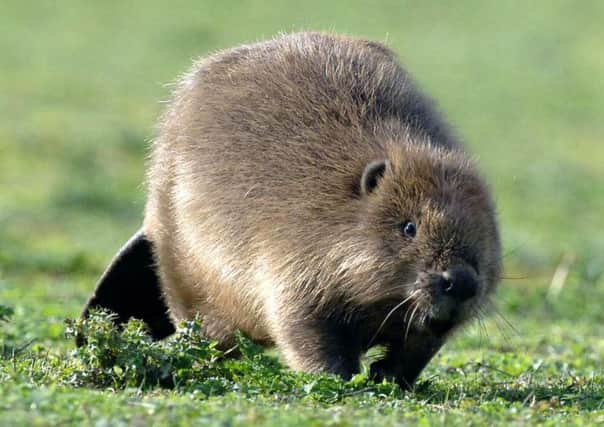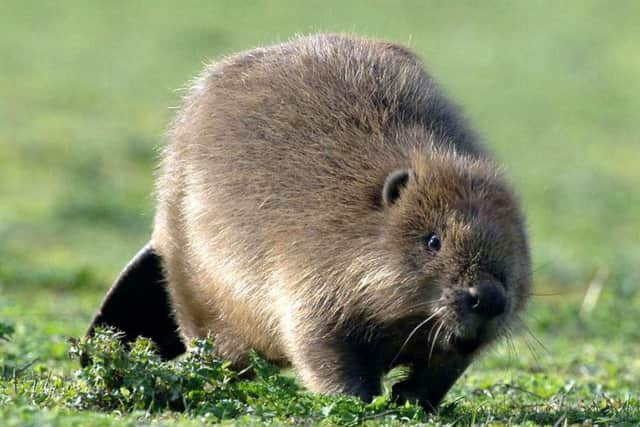Call for beaver to be recognised as native species


They want to build on current wild populations in Mid Argyll and Tayside which were introduced in successful trials. The groups are seeking government permission for further licensed releases across the country.
In a joint letter to environment minister Dr Aileen McLeod, the groups said the aquatic mammals will help to restore wetland ecosystems and bring “a range of other socio-economic benefits”.
Advertisement
Hide AdAdvertisement
Hide AdMore than 20 bodies – all non-governmental organisations (NGOs) and including Friends of the Earth Scotland, the National Trust for Scotland (NTS), the Scottish Wildlife Trust and WWF Scotland – signed the letter. Lindsay Mackinlay, NTS nature conservation adviser, said: “Wild beavers used to live in Scotland not that long ago. Indeed, we have individual trees growing now that were present when the last beavers lived in our rivers.


“The National Trust for Scotland believe there is a very strong case for seeing the return of free-living beavers to Scotland as soon as possible.
“This decision has not been made hastily but has been reached after weighing up the scientific evidence and experiences from other countries.”
Alan Carter, director of Reforesting Scotland, said: “In river catchments managed by beavers, fish stocks are higher, biodiversity is increased, flood peaks are reduced and pollution is filtered out. These are things that society spends millions on but beavers do them for free.
“They can have negative impacts too, but experience from places as diverse as the Netherlands and the USA shows that these can be managed effectively.”
The Scottish Beaver Trial finished last year after a five-year reintroduction study. It was the first licensed reintroduction of a mammal to the UK and brought the beaver back to Scotland after a 400-year absence. Scottish ministers are to consider the results of the trial and decide later this year whether beavers will remain in Scotland.
The Scottish environmental NGOs state that there is sufficient, suitable habitat currently in Scotland to support a thriving and self-sustaining beaver population.
Existing scientific modelling work and experiences from other similar European countries show that beaver populations can flourish in a wide range of freshwater habitats and evidence and research from other European countries shows that the restoration of beaver populations would have multiple benefits.
Advertisement
Hide AdAdvertisement
Hide AdBeavers, they claim, would offer a valuable means of restoring freshwater habitats by improving natural processes and function, and increasing the diversity and robustness of eco-systems in the face of threats such as climate change, habitat fragmentation and diffuse pollution from surrounding land uses.
The collective agree that, as a keystone species in wetland and freshwater ecosystems, the beaver will provide tangible and significant ecological benefits for a wide range of other species through the habitats and ecological niches they create, allowing other species to flourish.
During the five-year project an incredible 2,950,778 people were engaged with the trial.